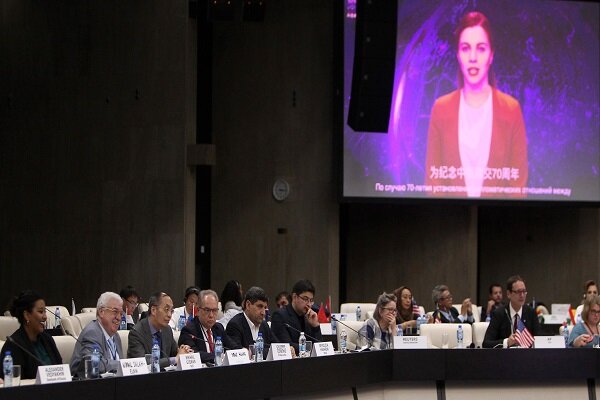The forum was held in Sofia June 13-14 under the motto "The Future of News". The Congress was organized by BTA and the News Agencies World Council.
Britain's Press Association (PA) Chief Executive Clive Marshall noted that news agencies are facing a shortage of revenue and suffer losses due to social media platforms. Given these conditions, news agencies must seek different content and offer alternative financing and revenue-generating mechanisms, he said. He added that the global trend is for state subsidies to news agencies to shrink.
The Managing Director of Iran's IRNA news agency, Seyed Zia Hashemi, noted that his agency is gradually improving its AI infrastructure. He warned that AI should be used cautiously until there is proper control, because the consequences could be dire.
PA Group's Managing Director of Sticky Content, Emily Shelley, said that the Group has been seeking a strategy to diversify its revenue sources for a few years now. A certain level of success has been achieved thanks to the additional services offered on the traditional market.
Pakistan Press International (PPI) Chairman Owais Aslam Ali noted that the IT revolution has significantly reduced the price of news content. New news agencies have emerged, which has lead to an outflow of subscribers. PPI has started offering new services in response to the digital way of generating and distributing content, he said.
The Managing Director of Japan's Kyodo News Agency's International Department, Kakuya Ogata, noted that his Agency relies on revenue from traditional media outlets, which make up 80 per cent of its portfolio. He dwelled on the impact of technological developments on media outlets. Media outlets are seeing their revenues shrinking which means that expenditures must be curbed, explaining that his Agency is currently trying to get into the business of direct sales to clients.
The Interim Head of Reuters News Agency, Sue Brooks, said that her organization decided to break up the products and upload all available content, including video, text and photos, to the cloud, which included everything generated since 1896. It was placed on a single platform called Reuters Connect, with clients subscribing for points, which they can spend for content uploaded on the platform. This has turned out to be a working model.
Australian Associated Press (AAP) Editor-in-Chief Tony Gillies said that the bulk of their revenue is still generated from news, video and photo content. He said another important source of revenue is advertising.
Discussing fake news, the Secretary General of the Federation of Arab News Agencies (FANA), Farid Ayar, said it is one of the biggest threats to democracy and free debate.
Thomas Kent, Adjunct Professor at Columbia University, and expert on journalistic ethics and the risks accompanying fake news, talked about how news agencies can prepare for the new wave of fake news. According to him, the problem is whether news agencies can deal with this issue alone. If they combine their efforts with the public, they can succeed, he noted. He urged news agencies to have teams that can quickly respond to fake news.
Journalism Professor at India's Ashoka University, Siddhartha Dubey, talked about the broken trust in his country's news media. He described fake news as the biggest scourge for India at the moment.
Associated Press' Europe Editor Anna Johnson said that her Agency has whole teams that deal only with fact checking, which prevents wrong information from being published.
The fake news trend can be viewed as a form of corruption, said Ukrinform Director General Oleksandr Kharchenko, which in his words, is a crime similar to money laundering. This is why news laundering must be criminalized, he said.
The participants in the panel on artificial intelligence (AI) agreed that it cannot replace the human factor in journalism but will facilitate the work of journalists.
The First Deputy Director General of Russia's TASS news agency and Vice President of the News Agencies World Council Mikhail Gusman said that everyone is talking about artificial intelligence, but it is difficult to predict what the future holds in that regard.
The Director General of XINHUA's Europe Regional Bureau, Yong Huang, said that his Agency reported last December that it is launching the first AI news readers. They consist of a computer-generated image of a real person. The Chinese Agency is already using such virtual news readers for its news in Chinese, English and Russian.
The Russian virtual news anchor "Lisa" was presented in Sofia together with the real person she is based on, so that the two can be compared. "Lisa" is the latest version released in Saint Petersburg last month and the best one so far.
The CEO of Italy's Il Sloe 24 Ore, Giuseppe Cerbone, noted that AI in media is already influencing and will continue to influence the whole value added chain. According to him, it will help editors become more efficient and productive. In the end, AI will encourage people's creativity.
The participants in the Congress were welcomed by Sberbank's digital avatar "Elena", which is developed based on artificial intelligence. "I know you are discussing the future of news today: I am that future," she said.
Iran is represented at the Congress by representatives from Mehr News Agency and the Islamic Republic News Agency (IRNA).
MNA/PR
